An Evening in Edipsos, the Spa Town of...
We discover the healing properties of...

Swing into 2023 with a wise, balanced attitude inspired by timeless ancient Greek philosophies.
© Perikles Merakos
The Greek word for health, “hygieia” describes a condition of completeness and contentment, which says a lot about the Hellenic attitude to wellbeing. The ancient Greeks were well aware of what so many doctors today are telling the world via bestselling books and trendy podcasts – that it is vital to maintain both physical and mental health while nurturing one’s spirit with art, good company, nutritious food and a positive, holistic mind frame.
Passionate about the importance of participating in athletics and regular visitors to Asclepions (more sophisticated versions of today’s spa and retreat centers), the ancient Greeks doubtlessly considered wellbeing as a top priority for an empowered existence. Here, we present various life-changing wellness tips from the ancients to help make 2023 (and beyond) a healthier, brighter and more meaningful one for you.

Bronze discobolus sculpture in front of the Panathenaic Stadium in Athens.
© Shutterstock
Aristotle, in particular, was a strong proponent of the link between physical and mental health, as expressed in the by now famous phrase “Healthy Mind in a Healthy Body” (in Greek “Nous Ygis, En Somati Ygis”). He believed that participating in sports and gymnastics was essential for developing the human body and achieving harmony between mind and body. He argued that these activities helped to optimize functional capacity and promote overall wellbeing.
In ancient Greece, a good citizen aspired to be virtuous and noble in both mind and body; training was a civic duty, rather than a lifestyle choice. Training facilities and professional trainers were provided by the city – for ordinary citizens as well as for champion athletes. The biggest names in philosophy devoted extensive passages of their works to laying out the rules for proper training and healthy eating. Find out more about fitness in ancient Greece.
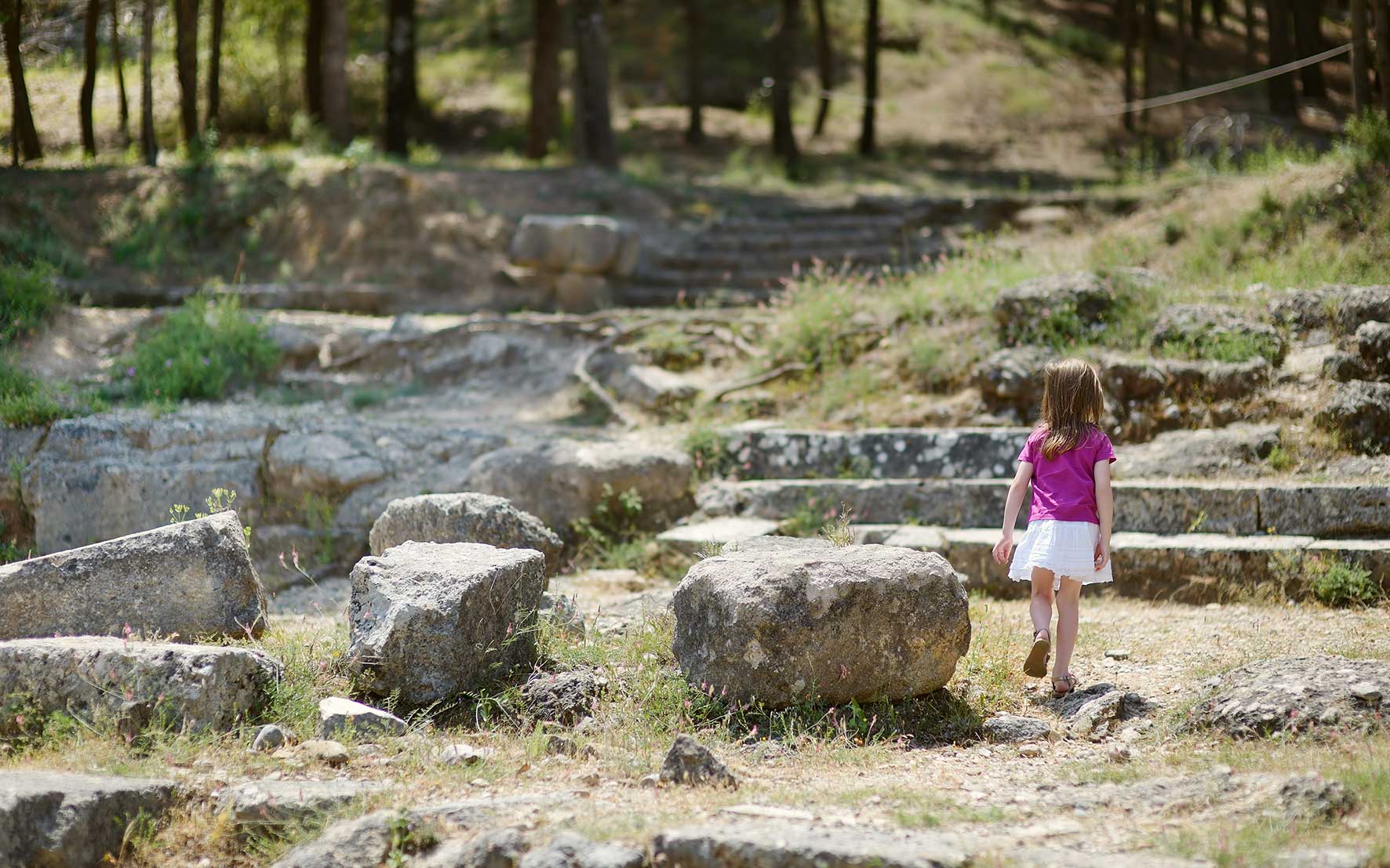
At the Asclepeion of Kos, an ancient healing sanctuary associated with the father of medicine, Hippocrates, and dedicated to the first doctor-demigod in Greek mythology, Asclepius.
© Shutterstock
Ancient Greek philosophers also recognized the importance of outdoor physical activity for maintaining physical and mental health. Plato, for example, believed that spending time in nature was essential for maintaining a healthy balance between the body and mind, and he encouraged his students to engage in physical activities such as horseback riding and wrestling. An appreciation of how walking outdoors could help stimulate the body and the mind was also indicated by the existence of his peripatetic school, in which students were taught as they walked alongside their teacher outdoors.
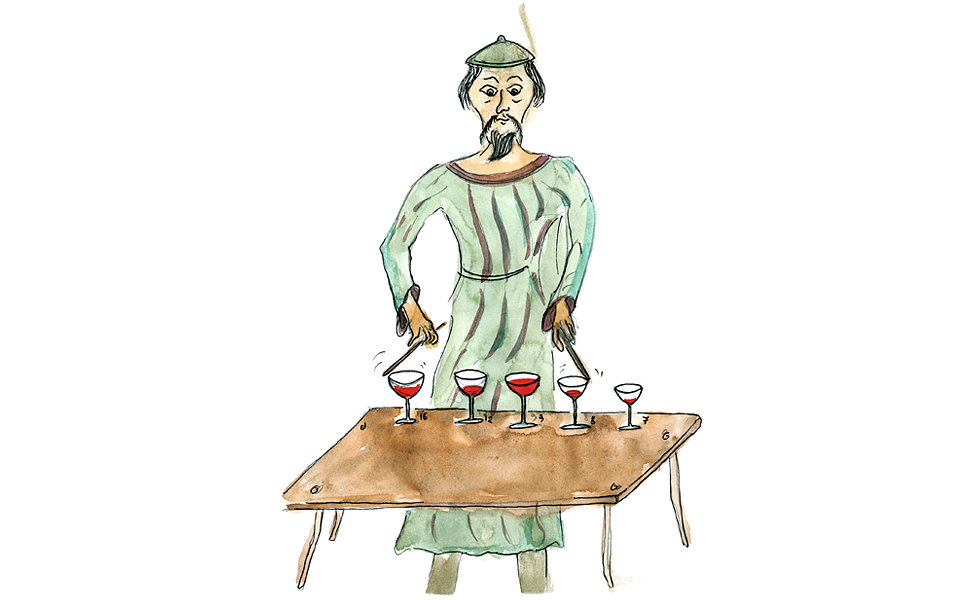
Maintaining balance in your daily habits is essential. Illustration depicting Pythagoras to present his theory that “All things are numbers.”
© Illustration by Dimitris Tsoumplekas
In his article “Fitness and Health in Ancient Greece,” Vassilis Klissouras, Professor of Ergophysiology at McGill University and the National & Kapodistrian University of Athens, writes that “Hippocrates, who is universally honored as the father of medicine, was the first to introduce the revolutionary notion that diseases arise either from excessive food or too much exercise, and when the two are balanced this leads to good health. In Book 1 of his On Dietetics (Περί Διαίτης), he notes:
‘Eating healthily by itself will not keep a man well; he must also have physical exercise… It is necessary, as it appears, to determine the exact powers of various exercises, both natural and artificial, and which of them contribute to the development of muscle and which to wear and tear. Furthermore, one must proportion exercise to the quantity of food, to the predisposition of the person, to his age, to the season of the year, to the changes of the winds, to the geographical place in which the person resides, and to the climatic conditions of the specific year.’”
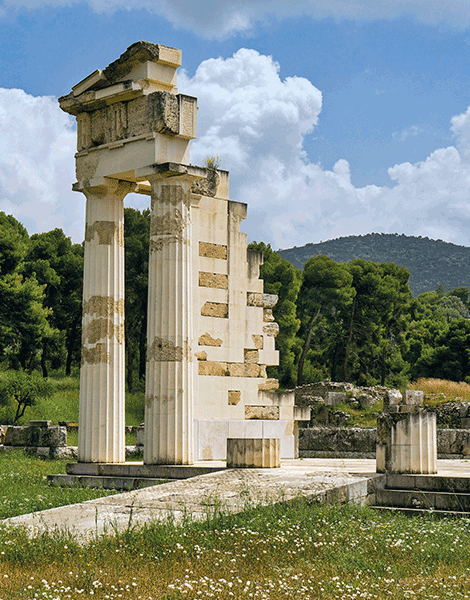
The Doric-style entranceway to the Gymnasium (4th c. BC) at Epidaurus, through which many an athlete passed.
© Perikles Merakos
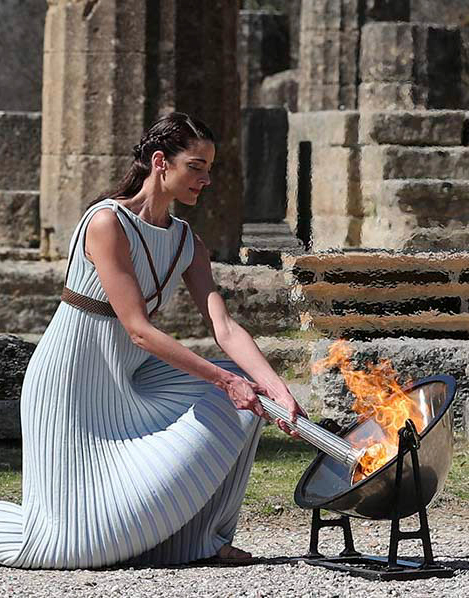
Lighting the Olympic Torch at Ancient Olympia, the site of the first Games in 776 BC. Most ancient writers attribute the development of systematic training to the establishment of the Olympic Games.
© ANA-MPA
In writing about “The Roots of Holistic Health,” Yannis Tountas M.D., Professor of Social and Preventive Medicine at the Medical School University of Athens, reveals that beyond exercise and diet, the ancient Greeks believed it was vital for individuals to be actively involved in the community.
“The ancient Greeks understood that good health was tied to physical and social environments as well as to human behavior. They defined health as a state of dynamic equilibrium between the internal and external environment. In addition, they empowered individuals and communities through new democratic and participatory institutions and placed emphasis on health education and skill development. They also recognized the importance of supportive environments and healthy public policy and reoriented medicine towards a more naturalistic and humanistic perspective.”
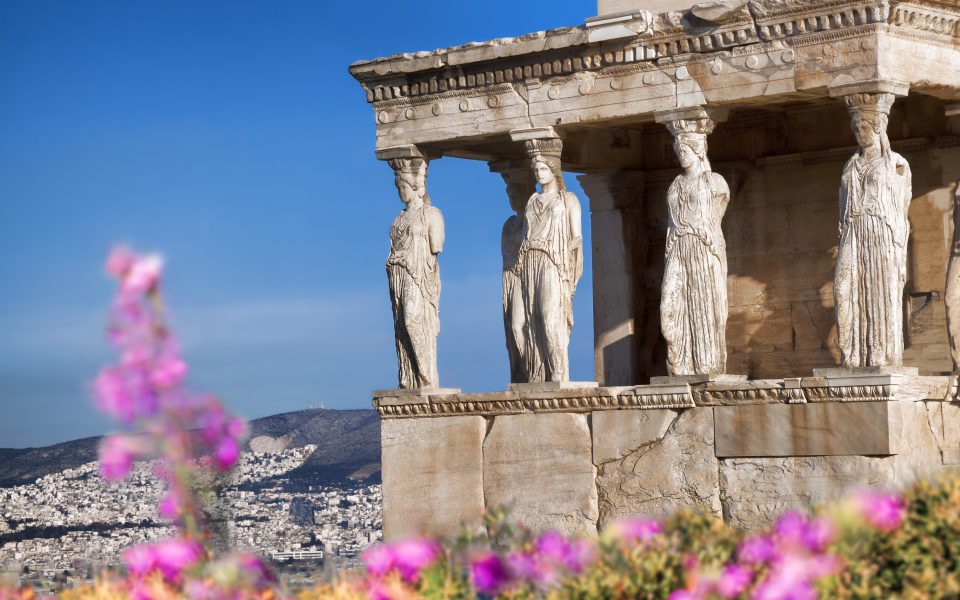
The Karyatids have the right idea: seeing situations from a higher perspective helps us see the big picture while offering enough distance for making a better assessment.
© Shuttertock
Donald Robertson, an acclaimed therapist who has dedicated his career to combining Cognitive Behavior Therapy (CBT) with Stoicism, offers his top wellness tips based on ancient Greek and Roman Stoical thought:
Choices Vs Accidents
The opening sentence of the Stoic Handbook of Epictetus says “Some things are up to us and other things are not.” Learn to define your sphere of control clearly: take more responsibility for what you do and be more indifferent toward things that merely happen to you.
Are You Seeing Straight?
Perhaps the most famous Stoic quote comes a few lines later in the same book: “It’s not things that upset us but our judgements about things.” We should remember that it’s mainly our own value judgements that shape our emotions rather than the external events that befall us.
Cut the Drama
Stoics were known for speaking concisely (Laconically) and describing things in a matter-of-fact way, without emotive rhetoric or strong value judgements – Epictetus says just stick to the facts without adding an exclamation like “Oh no!”
Look from Above
Sometimes also described as a “comprehensive representation,” the Stoics encourage us to view upsetting events within the bigger picture. We’re to picture them from high above like the gods looking down from Mount Olympus, or we can go even further and imagine.”
We discover the healing properties of...
A closer look at the powerful,...
Six Athenians tell us about their...
A natural spa by the Athenian...